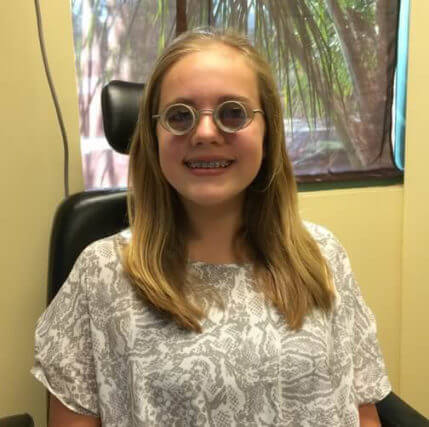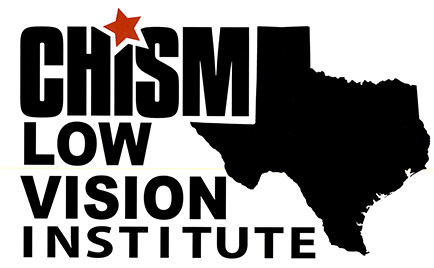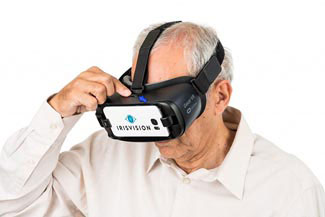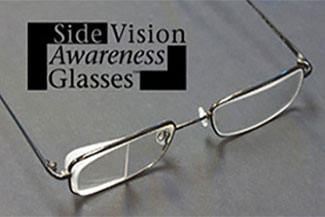Low Vision Aids & Devices
People are described as having “low vision” when they have visual impairments that cannot be corrected by surgery, medication, or using traditional eye correction methods such as standard glasses or contact lenses. Among other causes, low vision can result from an eye injury, eye conditions like macular degeneration, or aging.
Patients with low vision can find it difficult to perform everyday activities like driving, reading, or recognizing faces. Sadly, many patients are told that there is nothing to be done, resulting in a loss of hope in addition to their loss of independence.
Fortunately, our low vision eye doctor, Dr. Larry M. Chism, offers a wide range of low vision aids and glasses to help you regain your independence and increase your quality of life.
Visit us at Chism Low Vision Institute or give us a call at 1-888-243-2020 to find out more.
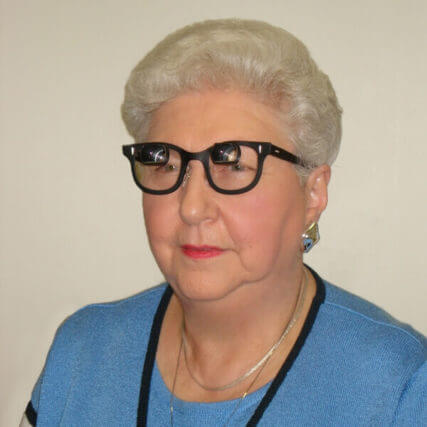

What Are Low Vision Aids?
Low vision aids can help you visually navigate the day-to-day challenges posed by eye conditions like macular degeneration, diabetic retinopathy, glaucoma, and retinitis pigmentosa. The success of these devices is well-documented.
With the help of these innovative vision aids, magnifiers, glasses, devices, and other technologies, a low vision eye doctor can help patients of all ages overcome the limitations of low vision.
How Do Low Vision Aids Work?
Low vision aids and glasses work by utilizing and maximizing the vision you still have. By significantly enhancing and directing your remaining vision, low vision glasses, aids and devices help you to regain the specific visual functions you have lost.
For example, high levels of magnification can help you read food labels or small print in newspaper articles, and those with very high levels of vision loss may benefit from computerized technology that converts text into audio.
Our low vision glasses and devices come in a wide range of designs and powers. They range from simple handheld magnifying lenses and advanced electronic devices, to state-of-the-art telescope glasses and more. After your initial consultation, Dr. Larry M. Chism will ensure that the recommendations are personalized to meet your specific condition as well as lifestyle needs and diverse visual requirements.
The Low Vision Aids We Offer
Most low vision devices are categorized as either optical, non-optical, or electronic. Each type is geared towards different visual tasks.
Some low vision aids we offer include:
- Hand-held/standing magnifiers
- Full-diameter telescopes
- E-scoop glasses
- Bioptic telescopic glasses
- Tele-microscope glasses
- Prismatic reading glasses
- Side-vision awareness glasses
- Absorptive lenses
- Computer software
- Video/digital magnifiers/CCTV
Which Low Vision Aids Are Right For You?
At your initial consultation, Dr. Larry M. Chism will assess the severity and specific limitations arising from your low vision condition. Once that is determined, the eye doctor will conduct a 60-90 minute low vision evaluation, which will help to further clarify the extent of your vision loss, the affected parts of your visual field, and whether it’s central or peripheral. Lastly, the optometrist will recommend suitable low vision aids and devices that can drastically improve your life. Before you leave with your new low vision aid, the eye doctor will instruct you on how and when to use the device and ask you to try using it during the assessment. This helps ensure that the low vision aid provides you with subjective visual improvement.
If you or a loved one suffers from impaired vision, know that Chism Low Vision Institute can help. Regain your independence and start doing the things you love again. To find out more and to schedule your appointment, contact our dry eye doctor today.
